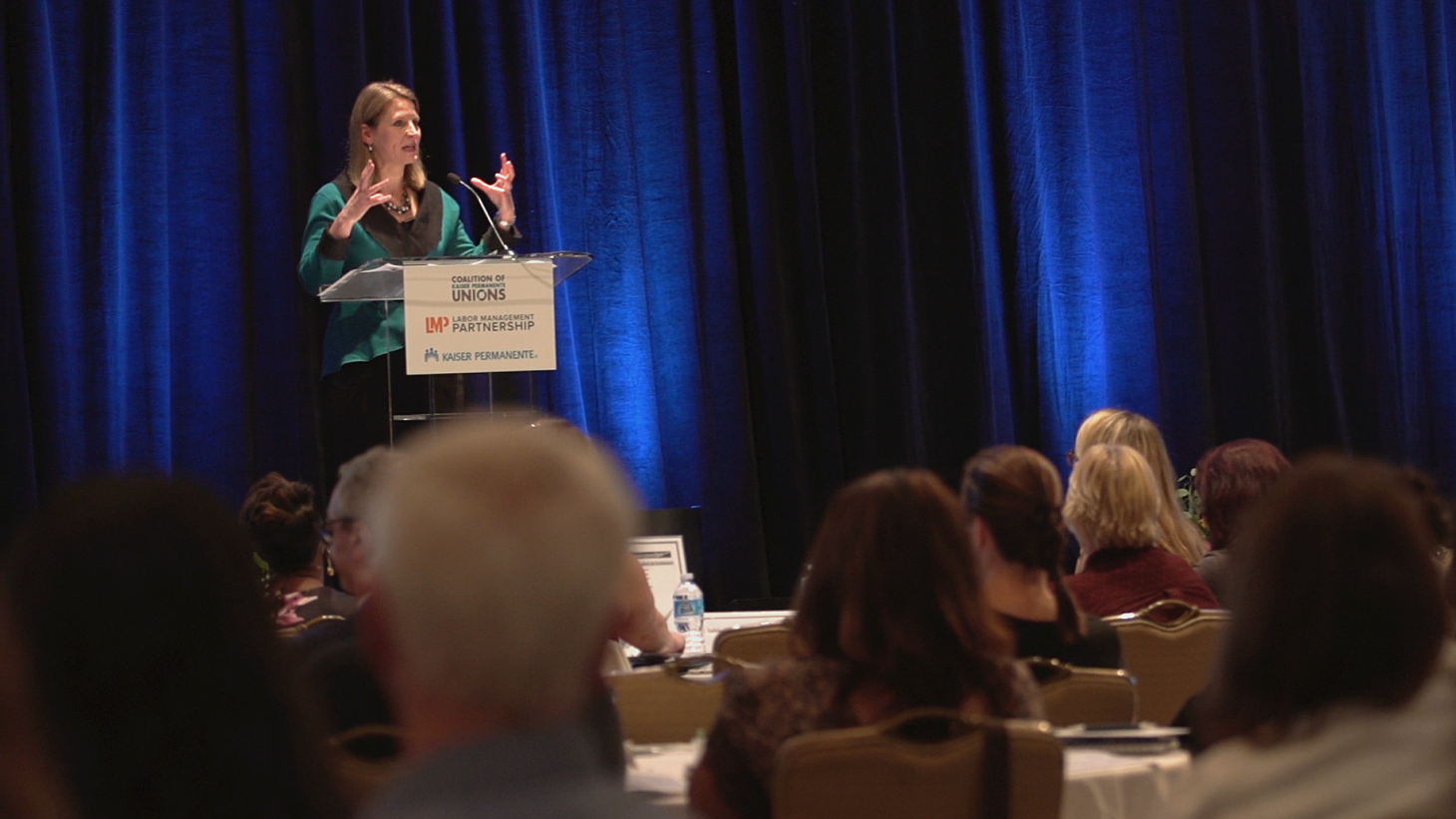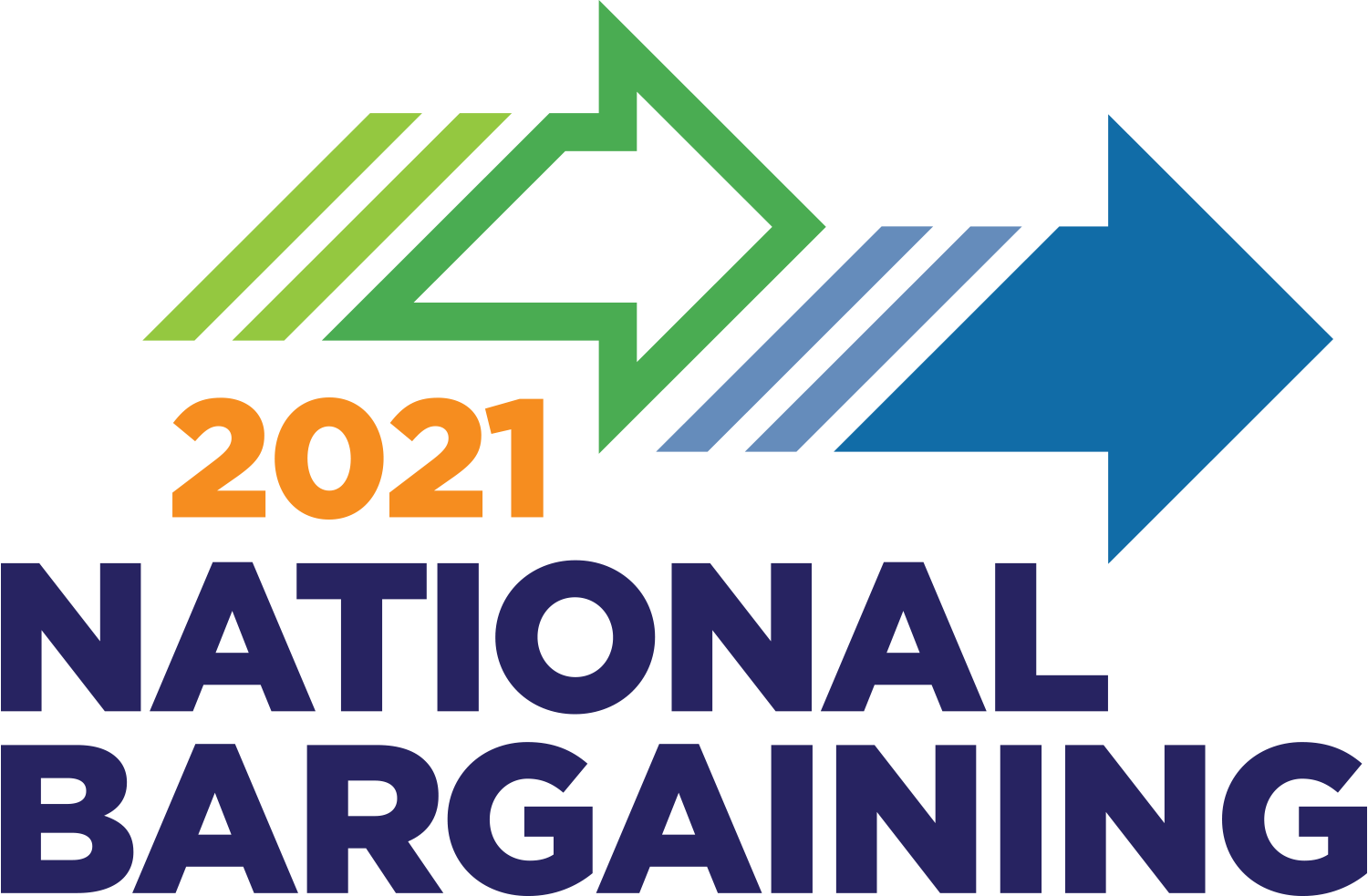
Liz Shuler, secretary-treasurer of the AFL-CIO, addressing Kaiser Permanente and union coalition leaders, endorsed their collaborative approach to workforce training and development.
Previewing health care system changes at Kaiser Permanente
Amazon. Facebook. Uber. Count the ways that technology has changed the way people shop, share information, get around—and the way work is done in those industries. Now add health care to that list.
That was the message of the 2016 Work of the Future Conference in November, where 200 Kaiser Permanente managers and workers looked at how health care is changing, and how management and labor can collaboratively shape those changes at KP.
Industry and union leaders shared emerging workforce trends and practices. They also praised KP and the Coalition of Kaiser Permanente Unions’ approach to performance improvement, problem solving and workforce development.
“Kaiser and the union coalition have nailed it when it comes to workforce training, workforce planning and making sure we're preparing for the future,” said Liz Shuler, secretary-treasurer of the AFL-CIO. “The collaborative approach really shines when we talk about training, workforce development and finding ways to help workers ladder up in their careers.”
Shared wisdom
With the help of unit-based teams, health care innovation has brought patients better and faster treatment at KP, said Nirav Shah, MD, senior vice president of clinical operations for the Southern California region. For instance, KP hip replacement patients often walk off the operating table, go home without spending a night in the hospital and get nursing care and physical therapy at home. “Radical transparency, shared data and the wisdom of unit-based teams” are essential to making such changes work, he said.
Skills for success
KP and union workforce planners shared how workers can prepare for more changes coming to health care by mastering four critical skills:
- consumer focus
- digital fluency
- collaboration
- process improvement
These skills are among the new training programs, previewed at the conference, to be offered to coalition union-represented workers in 2017 (learn more). Digital fluency, for instance, covers mobile devices, applications and their impact on health care. Kaiser Permanente and the coalition unions, working in partnership, have given KP workers a head start in at least two of the other critical skills—collaboration and process improvement.
Learning from others
Conference participants also learned from the experience of other organizations. DTE Energy, a Detroit-based public utility, worked with its unions to avoid layoffs even during the Great Recession, said Diane Antishin, DTE Energy’s vice president of HR Operations.
Michael Langford, president of Utility Workers Union of America, described his union’s training and apprenticeship programs, which have helped his members nationally adapt to changes in their industry.
As with our work in the Labor Management Partnership, interest-based bargaining helped both parties achieve their goals.
“If you come in with positional arguments you’ll never get it done,” said Langford. “But if you can get to what the underlying problem is, you can solve it.”
